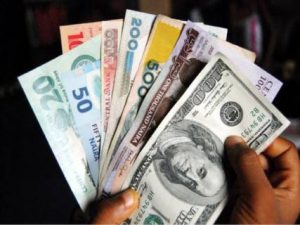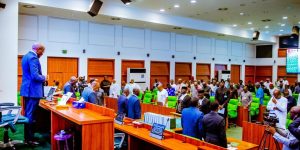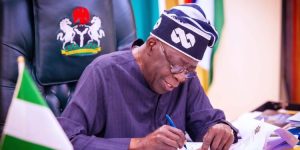Nigeria equities market, other African bourses raise $16.9bn in IPOs

The Nigerian Stock Exchange (NSE) and other exchanges in Africa raised a total of $16.9 billion from initial price offerings (IPOs) by companies going public on them in 2019.
The 2019 record was accompanied by the lowest volume in IPO activity over the past ten years, recording a decline of 47 per cent compared to the record in 2018.
These disclosures are contained in the latest PwC’s 2019 African Capital Markets Watch report recently released.
Aside from the dwindling level of activity in 2019, there were some other notable events in specific markets, the report noted.
“IPO activity resumed in Nigeria after four years, with Airtel Africa Plc’s dual listing on the Nigerian Stock Exchange (NSE) and the LSE, raising $687 million. Mozambique also recorded its first IPO in six years with the listing of Hidroeléctrica de Cahora Bassa on the Bolsa de Valores de Moçambique.
“Between 2010 and 2019, total IPO proceeds of $15.9 billion were raised on exchanges in Africa in 202 IPOs. Sub-Saharan African exchanges accounted for 133 IPOs or 66 per cent and $12.3 billion or 77 per cent of the value raised. The remainder was raised on the North African exchanges,” the report revealed.
Further analysis showed that of the amount raised on the sub-Saharan African exchanges, the JSE accounted for 71 per cent or $8.7 billion, while the NSE accounted for 13 per cent or $1.5 billion.
Meanwhile, analysts at PricewaterhouseCoopers LLP (PwC) also revealed in the report that Africancapital market in 2019 smack of declines and loss of momentum.
The experts equally expressed concern that the downtrend experienced in the years might remain even in 2020.
They said that overall, African equity capital market (ECM) activity in 2019 declined sharply both in volume and value from 2018, with 2019 posting the lowest proceeds raised in ten years.
The general slowdown in equity markets was ascribed to a series of macroeconomic factors including an ECM deceleration in global markets, caution in the period leading up to key local elections, which took place in both Nigeria and South Africa in 2019, and more specifically in South Africa, growing political gridlock and economic stagnation.
Andrew Del Boccio, PwC Africa capital markets leader said a state of uncertainty seems to have become the ‘new normal’, says some degree of volatility and caution is expected to continue to affect Africa’s capital markets activity in 2020.
“This sentiment is also reflected in PwC’s annual 2019 Global CEO Survey, in which African CEOs noted their expectations for a slowdown in economic growth as well as their top concerns, which included political risk, over-regulation, and worries about finding top talent to fill the skills gap,” Boccio said.









